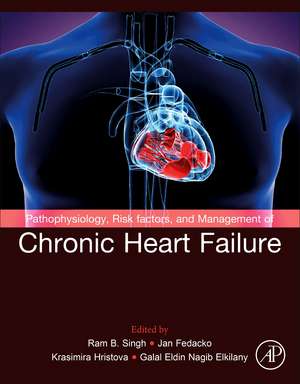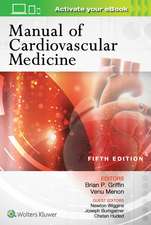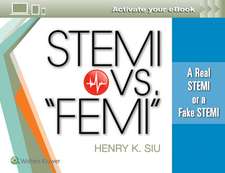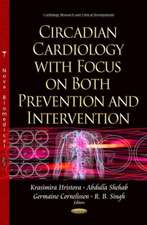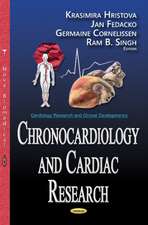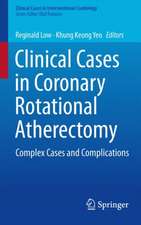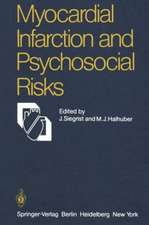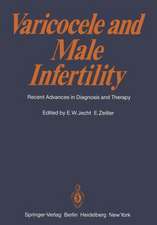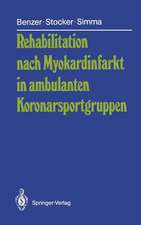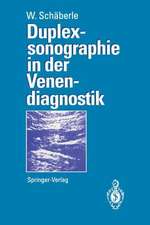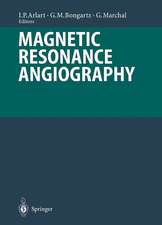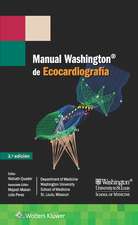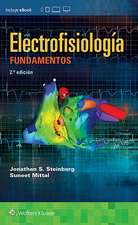Pathophysiology, Risk Factors, and Management of Chronic Heart Failure
Editat de Ram B. Singh, Jan Fedacko, Krasimira Hristova, Galal Eldin Nagib Elkilanyen Limba Engleză Paperback – 9 apr 2024
This first volume is focused on the epidemiology, classification, molecular mechanisms, pathophysiology, causes, identification and interactions of heart failure. It will explain the uncertainties and issues in Heart Failure by helping readers understand the physiopathology of CHF in the light of behavioural risk factors. 2D and 3D speckle tracking echocardiography have been used to quantify regional alterations of longitudinal strain and area strain, through their polar projection, which allows a further evaluation of both the site and extent of myocardial damage. The analysis of strain can identify subclinical cardiac failure (myocyte remodelling) which is a major issue in CHF. Myocardial Strain, measure by speckle tracking echocardiography, is frequently attenuated in these conditions and can be utilized for the evaluation of disease progression and the effect of therapeutic interventions as well as prevention because it could be a manifestation of behavioural risk factors.
These 2 separate volumes serves as essential references to both researchers and practicing clinicians, proposing novel methods of research by using behavioural and environmental risk factors as intervention agent, as well as discussing deficiency in the present approaches in management of HF and proposing new methods of early diagnosis and therapies for the clinical management of CHF.
- Includes a number new and controversial topics: Roles of both behavioural and nutritional risk factors in CHF; considering behavioural intervention which may change the remodelling, as well as nutrient supplementation or change of diet in preventing CHF or converting resistant HF in to HF responding to therapy; Evidence-based knowledge on CHF, with an emphasis on viewing CHF as a disease of the brain and contribution from other systems; Pre–Heart failure which can be prevented to restore normal cardiomyocyte function; Pathogenesis of HF in chronic kidney disease; 2D and 3D speckle tracking echocardiography
- Includes never-published tables and figures to aid understanding of the topics
- Contributions from international leading experts in the field, written with the aim of serving both researchers and practicing clinicians
Preț: 785.75 lei
Preț vechi: 976.80 lei
-20% Nou
150.37€ • 156.41$ • 124.14£
Carte tipărită la comandă
Livrare economică 05-19 aprilie
Livrare express 08-14 martie pentru 207.19 lei
Specificații
ISBN-10: 0128229721
Pagini: 454
Ilustrații: 400 illustrations (350 in full color)
Dimensiuni: 216 x 276 x 25 mm
Greutate: 1.2 kg
Editura: ELSEVIER SCIENCE
Cuprins
Section 1. History, Epidemiology and Burden due to chronic heart Failure 1. Introduction 2. Epidemiology and mortality due to heart failure 3. Behavioral Risk factors of heart failure including Marijuana, and Electronic Cigarette Smoking 4. Nutritional factors in the pathogenesis and prevention of HF 5. Evolution of the natural history of myocardial function to the heart failure Section 2. Classification of heart failure 6. Pre-heart failure and 7. Classification of stages of heart failure
Section 3. Molecular mechanisms in the Pathogenesis of Chronic Heart Failure 8. Molecular and cellular biology of chronic heart failure 9. Pathophysiology of chronic heart failure 10. Circadian dysfunction in the pathogenesis of HF 11. Cardiac remodelling in chronic heart failure 12. Role of Obesity on Mitochondrial Dysfunction and Energy Imbalance in Heart Failure"
Section 4. Pathophysiology of Cardiac Function 13. Abnormalities in the cardiac contraction 14. Abnormalities in the cardiac relaxation
Section 5. Autonomic nervous system in CHF 15. Role of Sympathetic nervous system in the chronic heart failure 16. Role of Parasympathetic nervous system in the chronic heart failure 17. The peripheral circulation in the chronic heart failure
Section 6. Chronic heart failure and chronic kidney diseases 18. Renal system in the chronic heart failure 19. Heart failure in chronic kidney disease
Section 7. Imaging in Chronic Heart Failure 20. Role of non-invasive imaging with reference to Speckle Tracking 21. Echocardiography in the chronic heart failure 22. Usefulness of 2D and 3D echo in the assessment of systolic and diastolic LV dysfunction. More coverage will be given to diastolic heart failure 23. Role of brain imaging in CHF
Section 8. Causes of heart Failure 24. Causes for chronic heart failure 25. Coronary artery disease and heart failure 26. Cardiomyopathies and HF 27. Inflammatory and metabolic heart disease 28. Valvular heart disease 29. Congenital heart disease 30. Right heart failure Cor pulmonale with reference to Health Care Burden of Cardiorespiratory Diseases and Heart Failure Caused by Air Pollutants and Microparticles 31. Oncology and heart failure 32. Acute heart failure 33. High prevalence of undetected heart failure in longterm care residents: findings from the Heart Failure in Care Homes (HFinCH) study 34. Analysing recurrent hospitalizations in heart failure: a review of statistical methodology, with application to CHARM-Preserved
Descriere
Chronic Heart Failure: Pathophysiology, Risk factors, and Mechanisms is the first of two separate but closely related volumes which aim to provide an inclusive overview on Chronic Heart Failure (CHF).
This first volume is focused on the epidemiology, classification, molecular mechanisms, pathophysiology, causes, identification and interactions of heart failure. It will explain the uncertainties and issues in Heart Failure by helping readers understand the physiopathology of CHF in the light of behavioural risk factors. 2D and 3D speckle tracking echocardiography have been used to quantify regional alterations of longitudinal strain and area strain, through their polar projection, which allows a further evaluation of both the site and extent of myocardial damage. The analysis of strain can identify subclinical cardiac failure (myocyte remodelling) which is a major issue in CHF. Myocardial Strain, measure by speckle tracking echocardiography, is frequently attenuated in these conditions and can be utilized for the evaluation of disease progression and the effect of therapeutic interventions as well as prevention because it could be a manifestation of behavioural risk factors.
These 2 separate volumes serves as essential references to both researchers and practicing clinicians, proposing novel methods of research by using behavioural and environmental risk factors as intervention agent, as well as discussing deficiency in the present approaches in management of HF and proposing new methods of early diagnosis and therapies for the clinical management of CHF.
- Includes a number new and controversial topics: Roles of both behavioural and nutritional risk factors in CHF; considering behavioural intervention which may change the remodelling, as well as nutrient supplementation or change of diet in preventing CHF or converting resistant HF in to HF responding to therapy; Evidence-based knowledge on CHF, with an emphasis on viewing CHF as a disease of the brain and contribution from other systems; Pre–Heart failure which can be prevented to restore normal cardiomyocyte function; Pathogenesis of HF in chronic kidney disease; 2D and 3D speckle tracking echocardiography
- Includes never-published tables and figures to aid understanding of the topics
- Contributions from international leading experts in the field, written with the aim of serving both researchers and practicing clinicians
